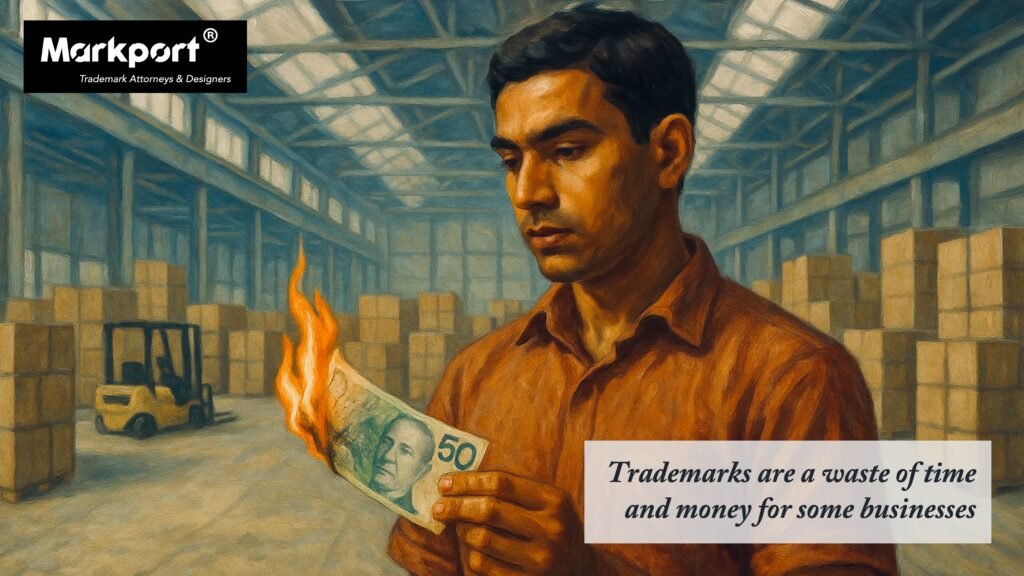When Trademarks are a Waste of Time and Money

Trademarks are a powerful way to protect your brand… but only for the right business models. When your strategy does not involve building a strong recognisable and unique brand in your industry, registering a trademark is not for you.
Here are five situations where trademarks may be a waste of your time and money:
1. When Your Objective Is to Sell Generic Products at the Lowest Price
If your business model is based on being the cheapest option, not building brand loyalty, a trademark might not help you. Trademarks protect brand identity, not the product itself. So, if your strategy is to compete on price alone and rely on volume sales, branding and by extension, trademarking may add little or no value to your business.
Example: You sell unbranded cleaning products to small retailers and compete solely on price. Customers aren’t choosing you for your name or logo… they’re buying based on cost. In that case, a registered trademark will not improve your bottom line.
2. When You Intend to Do Business Only for a Short Time
Trademarks are designed for long-term brand protection. An initial trademark registration lasts for 10 years, and you’ll want to maximise that protection period. If your business is seasonal, short-lived, or still in a testing phase, the time and cost of registration may not be justified.
Example: You start a fun run event business called Santa on the Run that will operate for just two holiday seasons before wrapping up. Since you’re not building a long-term brand, trademark protection isn’t a must-have.
3. When Your Objective Is to Imitate Another Brand
Trademarks exist to protect originality, not imitation. If your goal is to copy the look, feel, or name of a well-known brand, your trademark application will be rejected. If you insist on doing pursuing the brand without a registered trademark, you could find yourself on the wrong side of a trademark infringement or passing off lawsuit. The trademark system will not protect these types of businesses activities.
Example: You name your chocolate company Her-She Chocolates and design your packaging to resemble Hershey’s. This will almost certainly lead to rejection and possible legal action.
4. When You’re Not Sure About Your Brand
If you’re still developing your brand assets, such as your business name, logo, slogan, or overall design, it’s best to hold off on applying for a trademark. Once a trademark application is submitted, the details are fixed. If you make significant changes later, like switching your business name or updating your logo, you can’t simply amend the existing registration. You’ll need to start over with a new application, incurring more time and cost. To make the most of your initial registration, wait until your branding is final, consistent across platforms and ready for long-term use.
Example: You’re starting a digital studio but can’t decide between calling it Pixel House or Pixelator. Until you lock in your branding, registering a trademark would be premature and potentially wasteful.
5. When Your Products Will Be Rebranded by Others
Trademarks protect the brand that is visible to the public. This may consist of your name, logo, or tagline that consumers associate with your goods and services. So, if you operate a business that stays behind the scenes by supplying goods that are later repackaged and sold under another company’s brand, your own branding may not matter. Trademark protection won’t serve its purpose of distinguishing your goods in the marketplace.
Example: You supply dried mangoes in bulk to a supermarket chain like Coles, who sells them under their own home brand. The consumer never sees your brand. Unless you also sell your products directly to consumers under your own brand, registering a trademark may offer little commercial value.
A trademark only adds value when it’s protecting a brand that’s visible, original, and designed to last.
A trademark delivers real value only when it protects a brand that is visible in the market, distinctive in its identity, and designed for long-term use. If your business is still evolving, operating short-term, or not focused on branding, trademarking may not be for you right now.
Need clarity on whether a trademark is worth it for your business?
